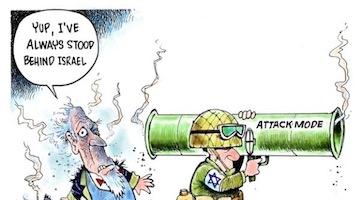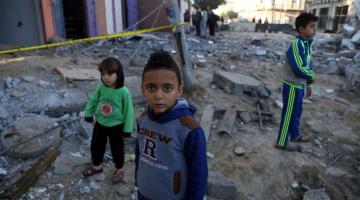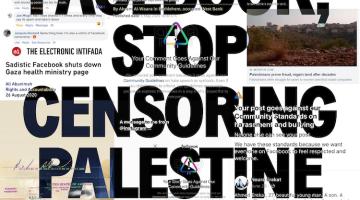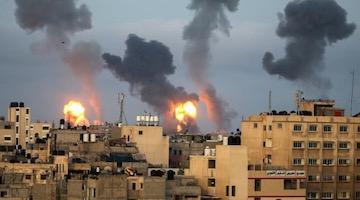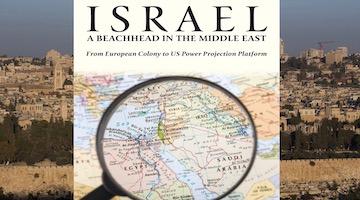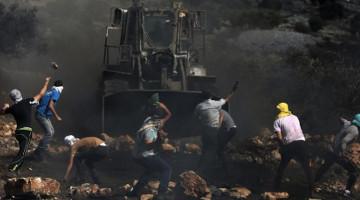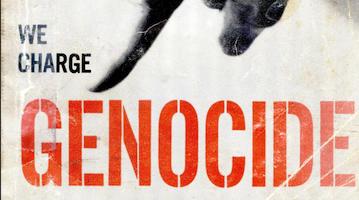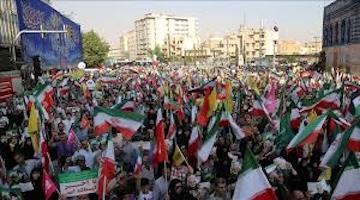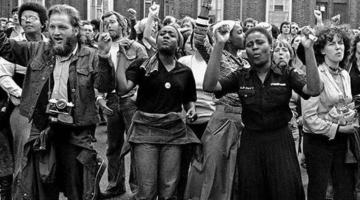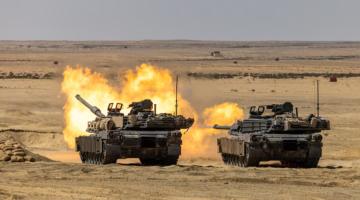“Israel is massacring Palestinian civilians again, but ‘the UN’—meaning the Security Council—has no power to stop it.”
Any relief for the people suffering in Gaza will have to come from outside the UN, so long as the US has veto power on the Security Council. As during the Vietnam War, the Council is deadlocked by the US veto.
The UN was created to protect the sovereignty of its member states and organize a multilateral, conceivably military response to violations of any member state’s sovereignty, but Palestine has never been allowed to become a sovereign member state, and the US uses its military dominance to trample all over the UN Charter anyway. Who’s going to provoke the 800-pound gorilla in the room?
So officials calling for another UN investigation in Gaza are just dodging the obvious: Israel is massacring Palestinian civilians again, but “the UN”—meaning the Security Council—has no power to stop it. Gazans remain caged in the world’s largest concentration camp, where the water is poisoned and sewage goes untreated. Electricity is rationed, even in hospitals, where doctors operate without morphine or anything more than aspirin. Gazans can’t leave, and the blockade keeps food, medicine, and construction materials from getting in and Palestinian exports from getting out. As Norman Finkelstein said on the 05.16.2018broadcastof Democracy Now, “Gaza is the only place on Earth where the place is unlivable and the people can’t move.” Last week UN human rights chief Zeid Ra'ad al-Hussein said that Gazans “are, in essence, caged in a toxic slum from birth to death.”
“The US uses its military dominance to trample all over the UN Charter.”
If I were to go on about Israel’s criminal cruelty in Gaza, BAR readers would no doubt stop reading, because we know all this, as do readers of other marginalized left media in the US. We also know, as Joe Lauria writes in Consortium News, that the U.S. Media Whitewashes Gaza Massacre[s], if it even covers them at all. Gaza has been the top story in left and/or antiwar outlets since the latest massacre, but the silence of the US corporate press is barely broken by anything but editorials blaming Gazans or Hamas. The Canadian, European, and even Israeli press seem less locked down, but will European nations do anything to upset their own Zionist lobbies? For weeks most of the headlines including the name of British Labor Leader Jeremy Corbyn were about the latest person alleging he’s an anti-Semite.
The US Congress and President are wholly beholden to Israel, this president even more than his predecessors, and if any US Senators or Representatives have voted against legislation to condone, enrich, or arm Israel in the past 10 years, I must’ve been watching the NBA playoffs. Fifty-five of a hundred Senators are cosponsoring S. 720, a bill to criminalize the “Boycott, Divestment and Sanctions Movement.”
“The silence of the US corporate press is barely broken by anything but editorials blaming Gazans or Hamas.”
UN Ambassador Nikki Haley has already vetoed a UN Security Council resolution calling for another investigation, even though such an investigation would be no more than another gesture because the US would veto any action proposed.
The government of Kuwait has called for a UN peacekeeping force to protect civilians in Gaza, but no such force could be organized in a way that would satisfy both Israel and Gaza, and if Israel didn’t welcome it, it would never get past the US veto. In “NoHoldsBarred: RwandanTroopsAretheSolutionforGaza,” one of Rabbi Shmuley Boteach’s more delirious essays in The Jerusalem Post, he suggested that Rwandan troops are best suited to serve as peacekeepers in Gaza because Rwanda suffered a genocide like the European Holocaust and would therefore be prepared to protect Israelis from Palestinians. You can’t make this stuff up.
The Rwandan massacres were not like the European Holocaust anyway—not a one-sided state bureaucracy subjugating, confining, and exterminating minority groups. In Rwanda, Hutu and Tutsi attacked each other, and the US and UK were pursuing their own geostrategy in the background. However, Israel finds advantage in equating the two and sharing the genocide trademark with Rwanda’s military dictatorship.
No way out?
There are few imaginable solutions beyond the Boycott, Divestment and Sanctions Movement, which hasn’t managed to rein in Israel’s aggression so far. Is it foolish to imagine that European nations and/or Israel’s other trading partners would impose sanctions? According to the Observatory of Economic Complexity, the top export destinations for Israeli products are the United States ($24B), China ($3.25B), Hong Kong ($2.89B), Palestine ($2.86B) and India ($2.13B). Israel imports the most products from the United States ($8.56B), China ($5.86B), Switzerland ($4.05B), Germany ($3.8B) and Belgium-Luxembourg ($3.44B).
We can of course forget the US because the Zionist lobby bushwhacks even the mention of sanctions, and both China and Hong Kong have quietly warm relations with Israel based on expanding trade relations. In April 2017, the South China Postreported that officials of Israel and Hong Kong had been meeting “to further strengthen economic ties,” including Israel’s “participation in Beijing’s belt and road initiative to revive land and maritime trade along the old Silk Route.” China is also known for sticking to business rather than politics, but that doesn’t mean it’s beyond grandstanding. In December 2017, The Diplomatreported that “China Vows to Play an Active Role in Settling the Palestine-Israel Issue,” but all that meant was that they’d just held a symposium about it in Beijing, as they did in Beijing in 2003 and Jerusalem in 2006. Palestine needs another symposium like it needs another investigation or another Operation Protective Edge.
“Officials of Israel and Hong Kong had been meeting ‘to further strengthen economic ties,’ including Israel’s ‘participation in Beijing’s belt and road initiative.’”
This is all grandstanding on the international stage as a slow-motion genocide continues, and India joins in too. Time for India to Play a Role in Israel-Palestine Peace?, another Diplomatessay, says that India depends on Iranian oil, and buys 40 to 45 percent of Israel’s defense exports, but that “Indian foreign policy is also driven by a need to increase global standing and prestige. Palestine-Israel, being the world’s most high-profile conflict, provides ample opportunity for New Delhi to present its credentials as a global leader, and compete with China as a champion of the developing world.” How much more shamelessly, cynically self-serving could a nation's leaders get?
That leaves Palestine, Switzerland, Germany, and Belgium-Luxembourg as Israel’s other most significant trading partners. Israeli exports $2.86 billion worth of products to Palestine, but we can forget about any sanctions coming from that helpless direction.
“Global corporations have little to gain in Palestine.”
Germany, Switzerland, and Belgium-Luxembourg together export roughly $11.4 billion worth of products to Israel, roughly $3 billion more than the United States and conceivably enough to make Israel uncomfortable if they imposed sanctions. However, calls for the protection of human rights or stopping genocide typically mask the concerns of global corporations, which have little to gain in Palestine.In 2003, France and its dashing Foreign Minister Dominique de Villepin appeared heroic for refusing to join the US and UK in the Iraq War and voting against it on the UN Security Council. However, according to oil expert Antonia Juhasz, France had ulterior motives; Saddam Hussein had in fact agreed to open Iraqi oil fields to French, Russian, and Chinese corporations, but not to those of the US and UK.
Optimism is hard to muster, but cynicism is a dead end. There ain’t no power like the power of the people, and the power of the people don’t stop—if it can get organized and call out all this grandstanding for what it is. Palestine is the one cause I know of that can turn out huge crowds all over the world, as it does every time Israel starts “mowing the lawn” in Gaza again.
Ann Garrison is an independent journalist living in the San Francisco Bay Area. In 2014, she received the Victoire Ingabire Umuhoza Democracy and Peace Prizefor her reporting on conflict in the African Great Lakes Region. She can be reached at @AnnGarrisonor ann@kpfa.org.



